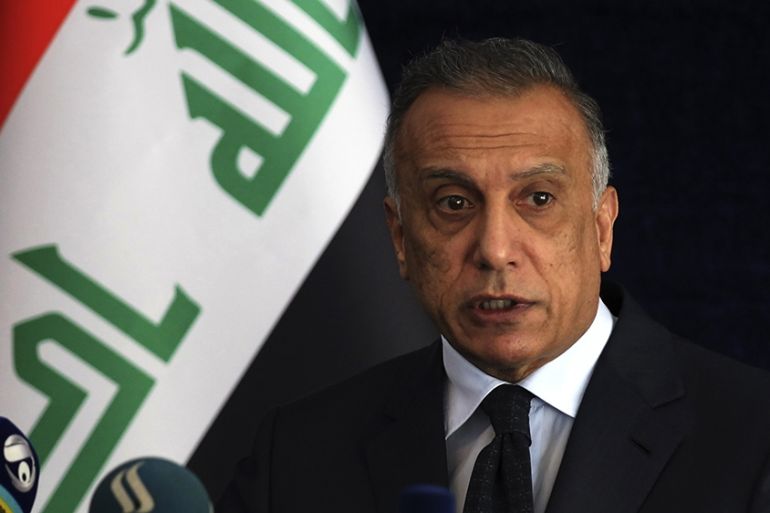Probe in drone attack on Iraq PM yet to identify attackers
Investigation committee released video footage but falls short on identifying attackers in November 7 incident.

Baghdad, Iraq – An investigation committee probing the drone attack on Iraqi Prime Minister Mustafa al-Kadhimi earlier this month has felt short on identifying the attackers but released a video footage detailing the events.
On Monday, almost three weeks into the investigation, national security adviser Qasim al-Araji said in a news conference that the committee has not accused any specific person or entity but called for collaboration among different parties to further the investigation.
Keep reading
list of 3 itemsIraq’s Lost Generation
Iraqi PM: No need for foreign combat forces on Iraqi soil
According to al-Araji, apart from the drone that caused damage at the prime minister’s residence, there was also an unexploded projectile with fingerprints on it but the bomb squad detonated it without collecting the fingerprints.
“We have launched an investigation into this matter and are asking for justification on the decision to not collect fingerprints,” said al-Araji, adding that both drones were “locally made”.
No group has claimed responsibility for the attack. Three people believed to be associated with the attack were reportedly arrested, although details of the arrests and the suspects’ identities have not been disclosed.
The investigation has become increasingly sensitive with various parties campaigning to deflect blame and advance their agendas.
Qais al-Khazali, leader of the Asa’ib Ahl al-Haq, an Iran-backed armed group under the Popular Mobilization Forces umbrella, had long denounced the blame as well as the election results.
In a televised speech on Sunday, al-Khazali said the investigation committee must “provide tangible and real evidence” instead of “allegations from the media and Facebook”.
Telegram channels affiliated with pro-Iran armed groups charged ahead with their campaign against al-Kadhimi, spreading unsubstantiated claims that the prime minister staged the attack to blame it on the armed groups.
Before that, Muqtada al-Sadr, the Shia populist leader whose political bloc won the largest number of seats in the October parliamentary election, called for an investigation into the assassination attempt and said in a tweet that “it is necessary to reveal the uncovered”, warning that he might reveal them if the committee did not.
The drone attack targeted al-Kadhimi’s house inside the fortified Green Zone and came at a politically sensitive time when the government formation process, following the parliamentary elections, was facing repeated obstacles, with the losing parties alleging fraud and al-Sadr trying to establish a majority government.